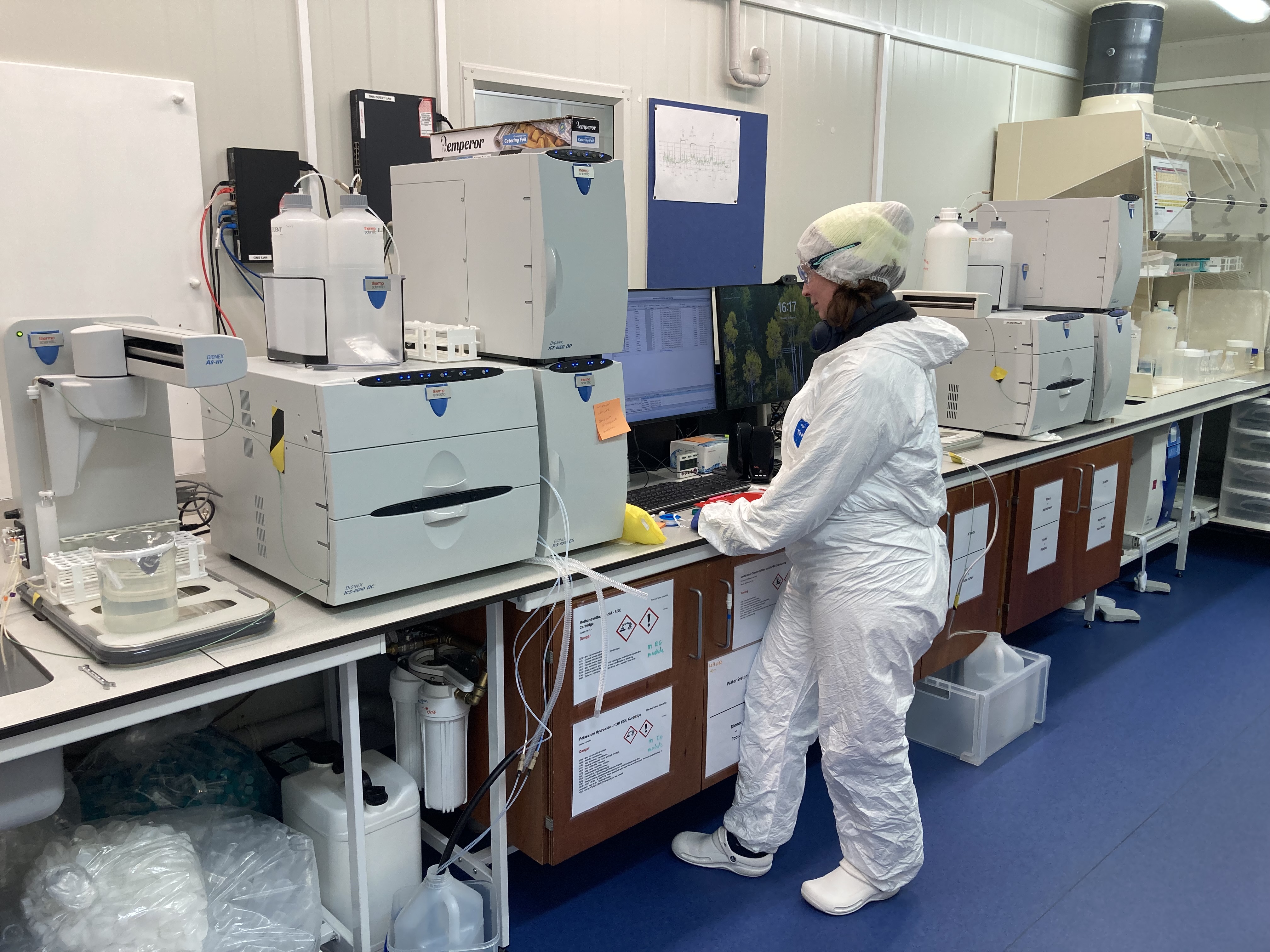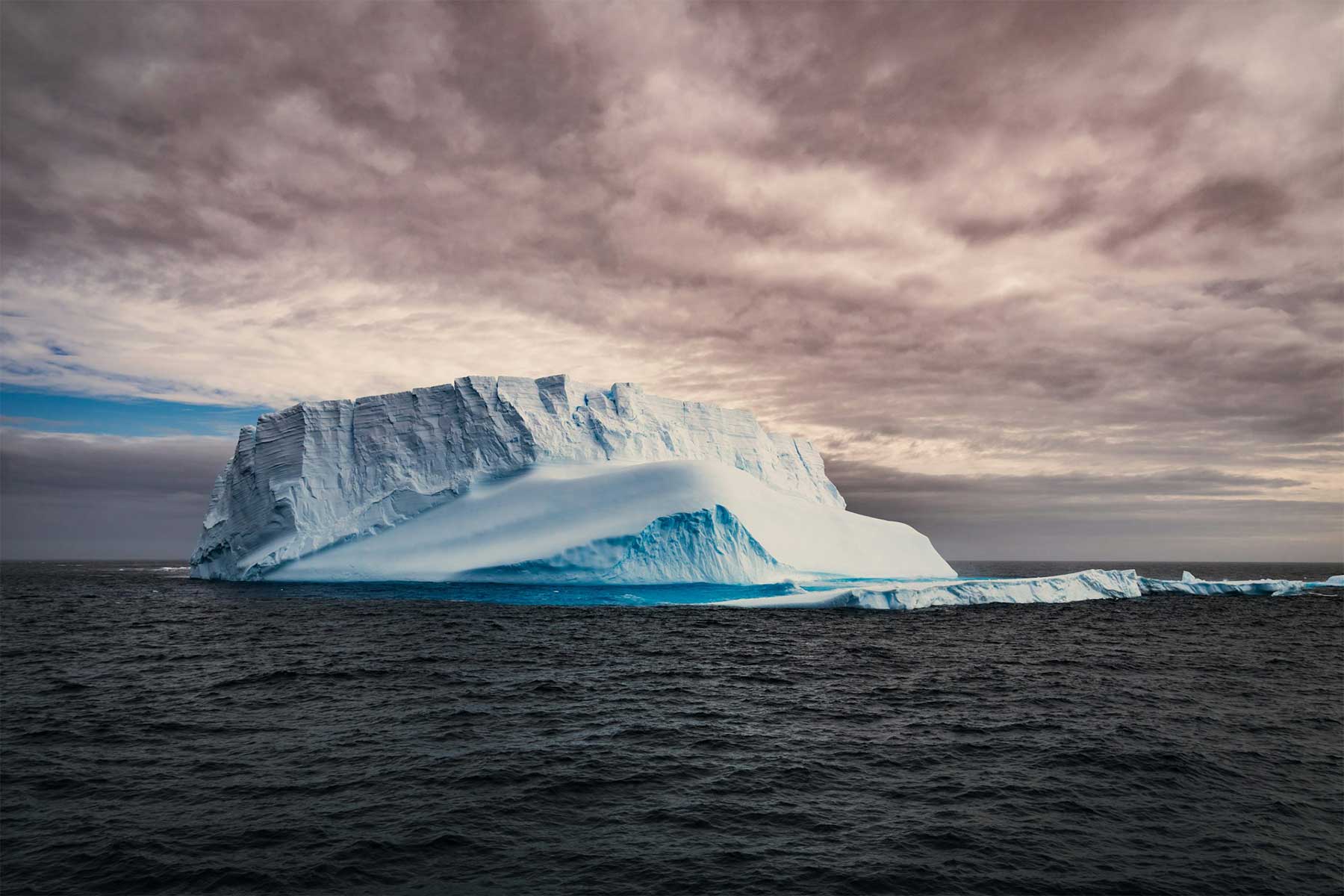The new ice core to be collected by our team, using a new drilling system, will be stored and processed in the National Ice Core Facility.
Earth Science NZ has recently upgraded, and doubled the capacity, of the facility’s state-of-the-art ion chromatographs, as well as investing in a new isotope continuous flow instrument for high resolution isotope analysis of ice cores. These investments, made in direct support of the Antarctic Sea Ice Switch research programme, strengthens our polar research capabilities.
Ion chromatography (IC) is a technique widely used to analyse the ionic composition (i.e. anions and cations) within ice cores. These ultra-low concentration geochemistry measurements provide valuable insights into past climate, ice and ocean conditions, as well as drivers of environmental change.
Around 12,500 discrete samples will be analysed for major ion chemistry and organic compounds using these newest generation ion chromatography systems. Stable water isotope measurements will be conducted in continuous flow, which provides extremely high resolution records of past changes in air and sea surface temperature and atmospheric circulation. The combined data will provide detailed records of changes over the most recent centuries with seasonal resolution. A particular focus for the team will be to assess how these changes have driven sea-ice variability and marine algae abundance, which in turn impact the global carbon cycle and marine heat transport, as well as the Ross Sea ecosystem health.




